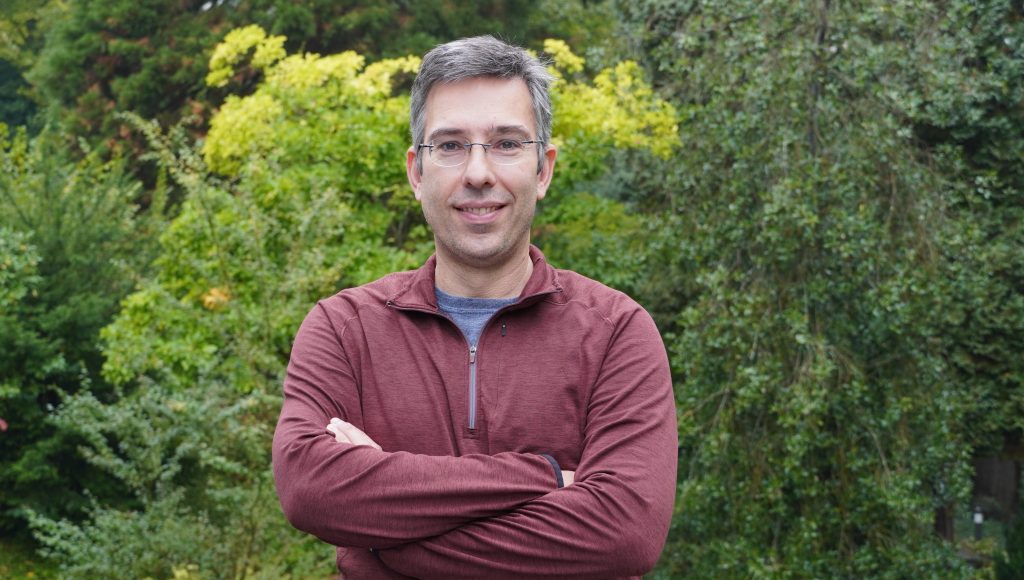Antonis Rokas
Klaus Tschira Guest Professor, June – September 2022
He steps out onto the terrace and enjoys the view of the garden, which is bathed in soft autumn light on this fine/beautiful September morning. “HITS is really a special place,” says Antonis Rokas, evolutionary biologist at Vanderbilt University in Nashville, Tennessee (USA) – and the first Klaus Tschira Guest Professor at HITS.
The Klaus Tschira Guest Professorship Program aims to enhance international exchange and scientific collaboration at HITS. Internationally renowned scientists are invited for sabbaticals or extended research stays. They can collaborate with scientists at HITS, develop joint research projects, and engage with the wider scientific community at the institute and in the Heidelberg region. At the end of 2022, HITS will have hosted two Klaus Tschira Guest Professors.
Antonis Rokas has used his sabbatical at Vanderbilt for this stay. “I have been in the faculty for 15 years, and we have sabbaticals every 4 years”, he says. “But I used to spent them in Nashville because we had small kids. Actually, this is the first time away from the homebase.” In order to make the most of the time available to him, he will be spending (a total of) seven months in Europe: After four months at HITS, he will be a visiting research fellow at the University of Oxford’s Merton College. “Both fellowships cater to my scientific interests”, he says. “Germany and the UK are powerhouses of science in Europe. At HITS I get a dose of the computational side of evolutionary biology, at Oxford a dose of the experimental side.”
During his stay in the summer, Antonis Rokas has collaborated intensively with Alexandros Stamatakis and the Computational Molecular Evolution group (CME). “Alexi and I have worked on a synthesis article about the challenges of evolutionary biology, with increasing datasets and millions of genomes to be sequenced.” He has also started a project with the CME group on the irreproducibility problem in computational biology where many factors are to be considered, like hardware, software, and the data involved. He also gave a hybrid colloquium talk in the Studio Villa Bosch on the ‘Incongruence in the Tree of Life’.
“For me, it has been a great experience, being back in Europe after so many years of living in the United States”, the Athens-born resumes. “Scientifically, it has been very productive. Alexi and I have worked together since 2014, and we have had the chance to intensify and expand our collaboration.” He emphasizes that he has had enough time to think and write, without distraction. “Sometimes, isolation helps”, he says, smiling. And finally, Antonis Rokas expresses another thought that is important to him: “The funding mechanism here is great. You are investing in people, not in projects – that´s the best model.”
(From the HITS Newsletter “The Charts”, issue 4-2022)
About HITS
HITS, the Heidelberg Institute for Theoretical Studies, was established in 2010 by physicist and SAP co-founder Klaus Tschira (1940-2015) and the Klaus Tschira Foundation as a private, non-profit research institute. HITS conducts basic research in the natural, mathematical, and computer sciences. Major research directions include complex simulations across scales, making sense of data, and enabling science via computational research. Application areas range from molecular biology to astrophysics. An essential characteristic of the Institute is interdisciplinarity, implemented in numerous cross-group and cross-disciplinary projects. The base funding of HITS is provided by the Klaus Tschira Foundation.
